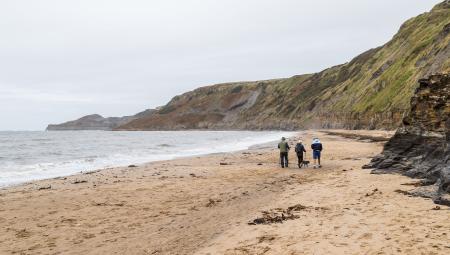Summary
The pioneer of the Compassionate Communities approaches Professor Allan Kellehear identified the 95% rule. A person living at home with a life-limiting illness may come into contact with statutory services up to 5% of any day. He asks the question, ‘as a community, what can we do to occupy that 95%?’
In western societies, death has increasingly become medicalised and crucial knowledge and skills at a community level have steadily declined. Compassionate Communities supports the idea of spreading a concept known as death literacy – which is practical know-how about what to do and where to find support in a palliative or end of life care context.
The project evaluated a method to mobilise community assets, harness and connect inherent skills and resources that already exist at a neighbourhood level, to improve experiences for people experiencing life-limiting illness, loss, or grief.
Project aims
The project aimed to:
- Convene and embed a series of citizen-led communities of practice to act as community connectors.
- Use the Compassionate Communities civic charter as a framework to develop a local public health approach to palliative and end of life care that enhances non-clinical community support for thos life with life linting illness, loss or grief.
- Work with community assets such as hospices, schools, care homes, local businesses, and community groups to establish what support is available outside of statutory services.
- Evaluate the contribution and impact citizen-led activities can have as we move to becomes Integrated Care Systems.
Project activity
- The project worked with the Population in Focus areas of Great Yarmouth and Waveney. Four citizen-led communities of practice were set up following advice from the ARC implementation theme.
- Three hospices in the East collaborated with ARC EoE to present a program of events for National Dying Matters week.
- The project lead supported a GP in the East to submit an award to the Royal Society for Public Health for this intervention that aligns with Ambition six where community volunteers were trained to act as ‘compassionate companions’. They receive referrals from the GP practice. A video of the project can be found here.
- Using an asset based community development approach we will design a visual ‘Treasure Map’ (inspired by the work of Angela Fell) of community assets that local citizens can contact, volunteer, and support to further develop social cohesion at a neighbourhood level.
Impact
The work has distinct relevance and application for Integrated Care Systems and their role in implementing NHS England’s Palliative and End of Life Care Ambitions Framework.
Further, it will support the NHS Strategic Clinical Network for Palliative and End of Life Care that launched in May 2021. I am a contact person for compassionate communities.
This work applies to Ambition Six: ’Each Community is Prepared to Help’. The mechanism of impact is embedding citizen-led activities that interface with statutory services. The project will support the key building blocks within Ambition 6.
Next steps
- Apply for an NIHR Knowledge Mobilisation Advanced Fellowship to share this work with other areas across the East of England
- Guy joined the What Matters Conversations Think Tank and will write a feature for them about the work being carried out along the East coast.
Recent activity
Four citizen-led communities of practice have been established – they have all met together to plan some discrete projects that align with the civic charter.
Who was involved?
Principle Investigator
Dr Guy Peryer, University of East Anglia
Contact us
Guy Peryer, G.Peryer@StChristophers.org.uk





